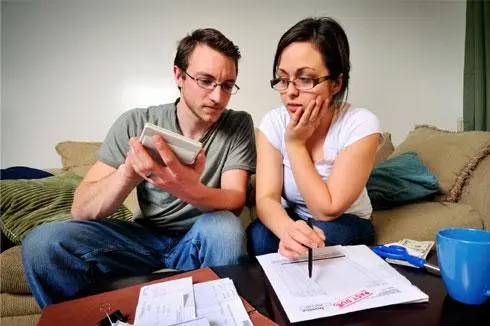Credit Card Debt Settlement
Financial Hardship and Credit Card Debt Settlement
There are debt relief options even if you are deep in credit card debt. In fact, Credit Card Debt Settlement is one great option for those in financial hardship.
We asked debt reduction experts about the profile of the typical client and were informed that their average client was living within their means and established good credit, They suffered some financial hardship, e.g., job loss, divorce, or death of a spouse. This caused them to use credit to live on, and they accumulated a fair amount of debt, often in a relatively short time. The choice was to use credit or don't pay for necessities.
Anyone struggling with debt knows that it can be a vicious cycle. If you can't afford your bills and keep taking on new debt, then much of your income goes to servicing the debt. Once you fall seriously behind, expect debt collectors to call and quite often threaten to sue.
The creditor has the option to pursue a civil lawsuit and attempt to gain a public judgment against you. If successful, this will lead to wage garnishments, bank levies, and liens on your personal property. Of course, anyone who has fallen behind in payments is suffering from lower credit. A public judgment will only worsen the situation.
Credit Card debt settlement is not based on credit, although most people in the program are already suffering from poor credit, and anyone entering the program will see a drop in their credit score. Keep in mind that the primary goal is to get out of debt. Afterward, you can work on improving your credit.
Credit Card Debt Settlement – Professional Help
While some people prefer to negotiate debts on their own, credit card debt settlement requires expertise. In many cases, a professional can take you to the finish line. Like any service, expect to pay a fee. However, do not pay advanced fees.
A professional company's first step is to give you a free consultation. They will evaluate your financial situation, including the types of debt you have, your income, your assets, and the levels of stress that you are willing to take to get out of debt. Then the credit card debt settlement company can establish whether you are a good candidate for a debt settlement program.
Once you enter the debt settlement program, you will deposit funds into a designated account in your name. Once there are sufficient funds, the company will negotiate with the credit card companies. There are no guaranteed results, but many companies talk about 20% fees (at time of settlement) and savings of about 25% based on the original debt principal.
Like any debt relief program, read the fine print. Here are some very important points to consider:
- You may not be able to complete the program. One reason is the inability to save money and make monthly deposits.
- If the debt is settled for less than the balance, then you might be liable for taxes to the IRS. Not everyone who has debt forgiven has to declare the amount forgiven as income. It is possible to avoid declaring the forgiven debt if a person meets the IRS's definition of liabilities exceeding assets. In that case, using the IRS Form 982 will allow the person to NOT declare it as income. In any case, consult with a tax expert
- Since you stop making payments to your creditors, your credit will be further damaged; however, for most people in financial hardship, that is most likely a minor problem.
- Debt collector calls do not disappear.
Credit Card Debt Settlement – Check Your Alternatives
Is credit card debt settlement the best debt relief option for everyone?
The answer is no! The Debt settlement program is a great program for people facing financial hardship. If you are looking for a debt relief program with low monthly payments, are not worried about hurting your credit (even more), willing to face collection calls, but want to get out of debt at a low overall cost, then credit card debt settlement is a great option.
Struggling with debt?
Mortgages, credit cards, student loans, personal loans, and auto loans are common types of debts. According to the NY Federal Reserve total household debt as of Q4 2023 was $17.503 trillion. Housing debt totaled $12.612 trillion and non-housing debt was $4.891 trillion.
According to data gathered by Urban.org from a sample of credit reports, about 26% of people in the US have some kind of debt in collections. The median debt in collections is $1,739. Student loans and auto loans are common types of debt. Of people holding student debt, approximately 10% had student loans in collections. The national Auto/Retail debt delinquency rate was 4%.
Collection and delinquency rates vary by state. For example, in Oregon, 15% have student loan debt. Of those holding student loan debt, 8% are in default. Auto/retail loan delinquency rate is 2%.
While many households can comfortably pay off their debt, it is clear that many people are struggling with debt. Make sure that you analyze your situation and find the best debt payoff solutions to match your situation.
